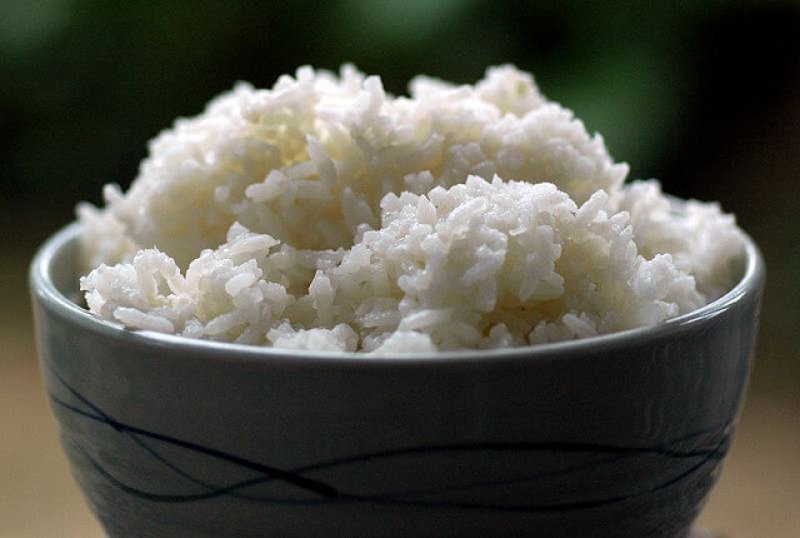An investigative report by China’s state broadcaster Central China Television (CCTV) recently exposed the illegal sales of unapproved genetically modified (GM) rice in supermarkets in central China’s Hubei province. Chinese authorities vowed last week to crack down on the illegal sales and growing of the GM rice. The scandal has also hit rice sales in Wuhan, the capital of Hubei.
CCTV reported that three out of five bags of rice randomly bought at supermarkets in Wuhan were found to contain GM rice, according to a Shanghai Daily report. The link to the original CCTV report appeared to be broken. The rice was tested at the Chinese Academy of Inspection and Quarantine, and the GM rice variety found was an insect-resistant variety called Bt63. CCTV commissioned the tests, according to a Xinhua report.
CCTV reported that Bt63 rice was widely grown by Chinese farmers, according to Shanghai Daily. A farmer on the CCTV show claimed that Bt63 rice was popular because of its resistance to pests, allowing farmers to save between 200 to 300 yuan ($32.35 to $48.56) per mu (0.67 hectare) of land. A food-processing plant manager told CCTV that GM rice was being grown in areas neighboring Hubei, like Hunan, Anhui and Fujian provinces.
The Chinese government declared that it will mete out harsh punishment to those found growing or selling GM rice illegally. “The ministry will punish any companies or individuals who illegally grow or sell GM grains, and there will be no tolerance for these practices,” according to a statement Xinhua obtained from the office in charge of GM food safety with the Ministry of Agriculture.
Bt63 rice was developed and patented by a team of scientists led by biotechnology professor Zhang Qifa from Huazhong Agricultural University. The rice received a GM organism safety certificate in 2009, but is yet to be approved for commercial planting and sales in China. The safety certificate for Bt63 rice expires August 17, 2014. There is no commercial growing of GM rice worldwide.
Zhang was suspected of being involved in the GM rice scandal, according to a report by China Daily. Zhang told Shanghai Daily that seed companies could have obtained Bt63 rice back in the 1990s as “regulations were not strict and many scientific and research results were shared.” He claimed that the seed companies could have grown and sold Bt63 rice to farmers.
In May, Greenpeace accused Huazhong Agricultural University of being the “source” of GM rice, after testing and finding GM rice in Wuhan supermarkets. The university denied the accusations and questioned Greenpeace’s testing process. The university also accused Greenpeace of stealing GM seeds from its research fields.
The scandal hit rice sales in Wuhan, according to a Xinhua report. “Customers keep asking whether it is GM rice,” said one saleswoman at Zhongbai, a local supermarket chain. The Chinese government came under fire for its lack of transparency in regulating GM crops. “I’m not against GM products, but being kept in the dark. You should let consumers decide whether to eat GM products,” a shopper surnamed Wang told Xinhua.
“The government is hiding the truth from the public,” Shi Baozhong, a lawyer from Anhui province who wrote an open letter to the China Food and Drug Administration and the Ministry of Agriculture, asking them to provide more information about GM food, told China Daily.
Additional Resources:
- China’s ‘father’ of conventional hybrid rice says ‘GM is the future’, South China Morning Post
- Greenpeace’s disinformation campaign against Golden Rice, and science, prevails in China, Genetic Literacy Project































